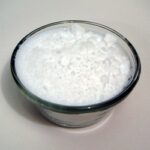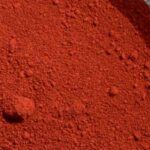Precipitated Calcium Carbonate
Precipitated Calcium Carbonate (PCC) finds versatile applications across various industries, including paint and other sectors due to its unique properties.
Some of its key uses include:
Paints and Coatings: PCC is widely used in the paint and coatings industry as an extender due to its ability to enhance properties like opacity, brightness, and viscosity control. It functions as a functional pigment, improving the performance and durability of paints while reducing costs.
Paper Industry: In paper manufacturing, PCC serves as a filler material, improving paper brightness, opacity, and bulk. It contributes to the paper’s quality by enhancing its printability and providing a smooth surface for writing or printing.
Plastics: PCC is utilized as a functional additive in plastic applications. It improves mechanical properties, impact resistance, and surface finish of plastic materials while reducing overall production costs.
Adhesives and Sealants: PCC acts as a rheology modifier in adhesives and sealants, enhancing their performance and enabling better control over viscosity and thixotropy.
Construction Industry: It is used in the production of cement and concrete to improve their properties such as strength, workability, and durability.
Rubber Industry: PCC serves as a reinforcing filler in rubber products, enhancing their mechanical properties like tear strength, tensile strength, and abrasion resistance.
Food and Pharmaceuticals: In the food and pharmaceutical industries, PCC is used as a calcium supplement, a firming agent, a color retention agent, and for various other applications.
Environmental Applications: PCC is used in various environmental applications, including as a pH regulator in water treatment, in soil stabilization, and as a filler material in biodegradable plastics.
Its high purity, fine particle size, and controlled particle shape make PCC a valuable material for a wide array of industries, especially in applications where precise control over properties is crucial.
Related products
-
CONSTRUCTION CHEMICAL MANUFACTURERS AND SUPPLIERS IN INDIA CHENNAI TAMILNADU
Iron Oxide Red ( Synthetic )
Add to cart






